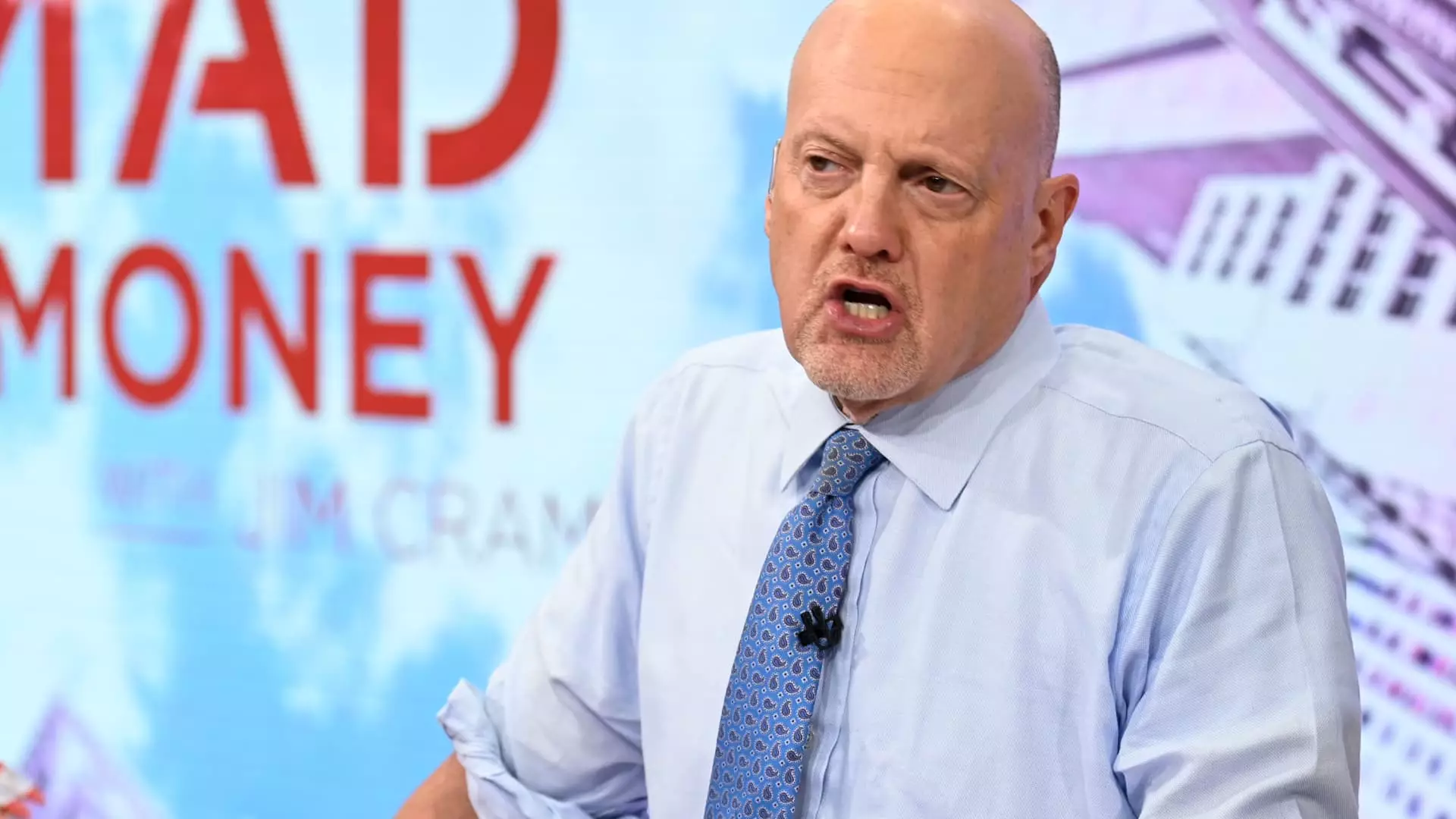In the wake of President Donald Trump’s aggressive tariffs, global stock markets are spiraling into uncertainty. This isn’t just another hiccup in the economy; this is a blatant manifestation of political decisions colliding with market realities. The fallout is palpable, with companies and investors alike standing on a precipice. As we brace ourselves for an influx of earnings reports, one can’t help but wonder if these corporate leaders are equipped to handle the chaos. Jim Cramer from CNBC poignantly pointed out that the performance of big banks and the impending inflation data next week will be critical markers on this rocky path.
It’s fascinating to analyze how corporate executives respond in times of turmoil. The looming question now is whether they can reflect on diverse strategies to fortify their businesses amid this whirlwind. With tariffs positioned as a double-edged sword, companies like Levi Strauss could find themselves teetering on the brink. As Cramer noted, previous underwhelming guidance has already punished these stocks, leaving investors anxious and disillusioned.
The Influence of Tariffs on Consumer Goods
Tariffs have an intricate impact on economies, particularly those relying heavily on international supply chains. For example, Levi Strauss, a staple in American apparel, finds itself vulnerable as tariffs target communities in Japan and Mexico. This raises critical concerns about profitability and future projections. The retail industry is especially sensitive to these changes; any decision by Trump that extends these tariffs or fails to alleviate their strain could further hamper companies already struggling to maintain sales.
Cramer’s insights are particularly relevant as he highlights that the forthcoming earnings reports might not just be reflective of a company’s performance but a broader commentary on adaptability in the face of adversity. The real test, however, may not just lie in beating expectations but in sculpting a resilient brand ethos that resonates with consumers even as inflation nags at their wallets.
The Uncertainty of the Travel Sector
Airlines have traditionally served as a barometer of economic health, and Delta Air Lines’ forthcoming earnings report is set to unveil more than just numbers. Delta recently made headlines by cutting its projections, a move signaling deeper turbulence in the travel industry. Cramer suggests that the ramifications of tariffs extend into air travel, both in pricing and consumer behavior. How can businesses hope to thrive when the essential building block of consumer confidence is precariously low?
In an environment where discretionary spending is warily assessed against higher prices—thanks in no small part to tariffs—consumers may begin to tighten their belts. Airlines, which are often perceived as luxury expenditures, may see diminished demand. This raises uncomfortable questions about the long-term viability of travel as a lucrative sector if economic anxieties prevail.
The Financial Sector’s Tightrope Walk
As major banks like JPMorgan Chase and Wells Fargo prepare to disclose their earnings, a sense of trepidation lingers. Cramer underscores the paradox that exists; even if these institutions beat expectations, the broader market sentiment influenced by tariffs and economic forecasts could still weigh them down. The possibility that souring economic expectations morph into actual declines paints a bleak picture.
The Federal Reserve’s role emerges as a frontline actor in this saga. The ever-reaching arm of inflation complicates their decisions on interest rates. If tariffs raise prices further, the Fed may find itself in a precarious position. It’s a complicated web of economic strategies where any misstep could lead to a downward spiral—resulting in layoffs and financial woes for countless Americans.
The Role of Executive Adaptability
The onus falls on corporate executives to pivot strategically in response to emerging challenges. Cramer emphasizes the need for dynamic leadership capable of transforming the narrative from bearish to bullish. While shareholders hope for immediate returns, it’s the long-term vision that will ultimately define which companies emerge victorious from this tariff-induced battleground.
In a world crying out for adaptable, innovative leadership, the response from CEOs to external pressures, particularly in addressing tariffs, will dictate their legacy. The stakes have never been higher; ignoring the signal to adapt could spell disaster for many in our increasingly interconnected global economy. As we stand at this critical juncture, one can only hope that the lessons derived from this tumultuous period foster a generation of resilient, forward-thinking business leaders.

